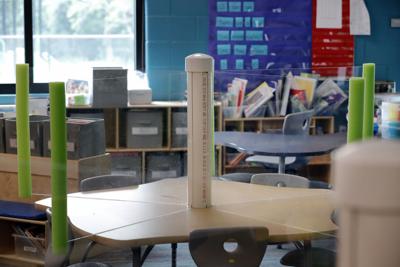In a national ranking of children's well-being, South Carolina ranks 41st in 2021 and the report raises alarm bells about the COVID-19 pandemic's ongoing threat to kids' health, education and happiness.
"Nearly a decade of progress could be erased by the COVID-19 pandemic unless policymakers act boldly to bolster an economic recovery," the Children's Trust of South Carolina said in response to the annual report from KIDS COUNT, an effort of the national Annie E. Casey Foundation.
Based on pre-pandemic numbers, the ranking of 41st is the same as it was in 2020. South Carolina scores 44th in education and 46th in health.
Fourteen percent of kids in South Carolina do not have access to internet and a computer to do their schoolwork, two points above the national average. On a positive note, the rate of childhood obesity has decreased by about 9 percent in the past three years, though about 36 percent of kids in the state are still considered overweight or obese.
As a supplement, the Children's Trust also used a more recent, state-specific survey to capture how the pandemic has affected South Carolina's children. Among its findings: 43 percent of parents and other caregivers report their current child care arrangement is not ideal due to COVID-19. And because of the economic downturn, children were not getting enough to eat in nearly 61,000 households, up from about 35,000 before the public health crisis.
Aditi Srivastav, a Ph.D. and director of research for the Children's Trust, said the safety nets that help to lift kids up were tested during the pandemic and some have yet to recover despite widespread availability of vaccines and the end of physical distancing restrictions.
"The pandemic definitely had a detrimental impact in terms of kids being able to build their social emotional development and have access to basic resources," she said.
Srivastav said for example, disparities between White and children of color in the state only worsened during the pandemic.
Among the trust's recommendations is that members of Congress should make permanent some of the temporary relief measures enacted with the passage of the American Rescue Plan, a stimulus package that passed in March. They point to the expansion of the child tax credit, a benefit for people with kids, in particular.
Children as young as 12 are eligible for a vaccine from Pfizer. As of June 19, 93,000 adolescents 12 to 19 had received a shot.
Statewide numbers
New cases reported: 56 confirmed, 30 probable.
Total cases in S.C.: 492,667 confirmed, 102,918 probable.
Percent positive: 1.2 percent.
New deaths reported: 0 confirmed, 0 probable.
Total deaths in S.C.: 8,626 confirmed, 1,175 probable.
Percent of ICU beds filled: 67 percent.
S.C. residents vaccinated
DHEC's vaccine dashboard shows 47 percent of the state's residents have received at least one shot of a COVID-19 vaccine.
Hardest-hit areas
In the total number of newly confirmed cases, Richland County (9), Florence County (5) and Charleston County (5) saw the highest totals.
What about tri-county?
Charleston County had five new cases on June 21, while Berkeley County had five and Dorchester County had one.
Hospitalizations
Of the 142 COVID-19 patients hospitalized as of June 21, 35 were in the ICU and 19 were using ventilators.
What do experts say?
A study published in the journal Clinical Infectious Diseases on June 15 offers new evidence that COVID-19 arrived in the United States weeks before the first case was confirmed in Washington state on Jan. 21, 2020.
Researchers looked for antibodies in about 24,000 people who voluntarily gave blood samples for study during the early weeks of the U.S. epidemic in January, February and March of last year.
Of those thousands, seven were identified as having a positive test before the first confirmed case in their respective states, according to the study.
"Our findings indicate SARS-CoV-2 infections weeks prior to the first recognized cases in 5 U.S. states," researchers wrote.
The conclusion should come as little surprise, given it has been widely theorized that undiagnosed coronavirus disease cases were circulating sooner than Jan. 21, 2020.










